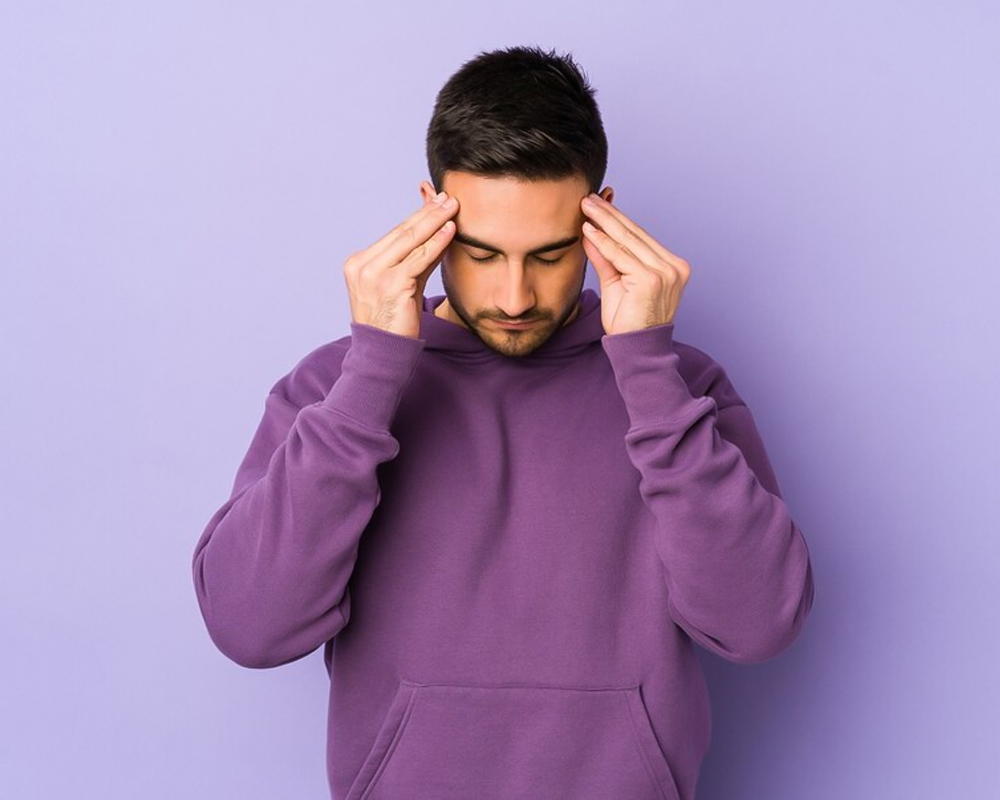Ever wondered what is Somniphobia? People experience fear of sleep, which is known as somniphobia. Moreover, it is a complex and distressing condition that can significantly impact an individual’s overall well-being and mental health. This phobia often stems from anxiety. Also, it is characterized by an intense and irrational fear of falling asleep, causing further distress. Furthermore, individuals with this phobia typically fear losing control, experiencing nightmares, or being vulnerable during sleep. While occasional worry about sleep is common, somniphobia transcends typical concerns. Additionally, it manifests as a chronic condition that disrupts nightly rest, daily routines, and emotional stability.
In addition to this, those affected may avoid bedtime or engage in counterproductive habits to stay awake. Also, they may experience severe physical and emotional symptoms. These symptoms may include racing thoughts, panic attacks, and insomnia. Furthermore, this condition can arise from various causes. Causes like trauma, past sleep-related experiences, underlying mental health disorders, or cultural and personal beliefs about sleep. Left untreated, this fear of sleep can lead to long-term consequences. Moreover, repercussions like chronic fatigue, weakened immune function, and mental health deterioration. Therefore, exploring further and consulting top-notch mental health facilities is the key towards better mental well-being and vibrant life. Understanding the symptoms, identifying the root causes, and exploring effective treatments are essential steps in managing this condition. So, keep reading to restore a healthy relationship with sleep!
Distinguishing Fear of Sleep from Sleep Anxiety
While somniphobia and sleep anxiety both involve concerns related to sleep, they differ in their intensity and underlying causes. Sleep anxiety often stems from frustration or worry about not getting sufficient rest. Fear of sleep is marked by a profound and irrational fear in contrast to this. Furthermore, these fears are driven by feelings of harm, nightmares, or vulnerability during sleep. The fear associated with this condition is typically more intense and debilitating. In addition to this, the underlying fear behind this condition goes beyond general sleep-related anxiety, disrupting one’s ability to rest entirely.
Prevalence of Somiphobia
Phobias, including this fear of sleep, are a common experience. Approximately 12.5% of individuals have been through some kind of phobia at some point in time. Each year, around 9% of adults are affected by phobias that they might have ignored or left untreated. Although precise statistics for this condition remain unclear, studies reveal that over 40 million adults in the United States suffer from chronic sleep disorders. In addition to this, studies suggest a significant overlap between sleep-related challenges and phobic conditions.
Understanding Fear of Sleep—A Detailed Guide
Fear of sleep is a debilitating condition that can disrupt an individual’s physical, emotional, and psychological well-being. This condition involves an irrational fear or intense anxiety associated with sleeping. Moreover, even the slightest thought of sleep or the idea of falling asleep can further distress an individual. People with this fear may experience significant distress and adopt avoidance behaviors. Furthermore, this fear of sleep makes it challenging for those affected to live a productive or vibrant life. Let’s explore Somniphobia symptoms, causes, treatment options, and more in detail.
Signs of Somniphobia
Understanding the early indications of somniphobia is crucial for timely intervention.
Intense Fear of Sleep:
Individuals feel overwhelming fear or dread at the thought of sleeping, often worrying about losing control or nightmares. Additionally, they may also fear physical harm during sleep.
Avoidance of Sleep:
Persistent attempts to stay awake by engaging in activities. These activities may include watching television, drinking caffeinated beverages, or overworking.
Physical Somniphobia Symptoms
Somniphobia can cause physical symptoms like rapid heart rate, sweating, shortness of breath, dizziness, and trembling. Moreover, these usually occur nearer to bedtime.
Emotional Distress:
Feelings of panic, unease, or helplessness related to sleep are prevalent in this condition. Also, such emotions often escalate during nighttime hours.
Disrupted Sleep Patterns:
Chronic insomnia or irregular sleep patterns due to fear can lead to fatigue, irritability, and difficulty focusing during the day.
Symptoms Relating to Fear of Sleep
The physical, emotional, and behavioral manifestations of somniphobia can vary among individuals. However, some common and most observed symptoms could include;
Panic Attacks Before Sleep: Intense episodes of fear accompanied by physical symptoms like chest pain, choking sensations, or nausea.
Nightmares or Sleep Paralysis: Anxiety about having vivid nightmares or experiencing sleep paralysis, even if these events haven’t occurred before.
Hypervigilance: An extreme state of alertness, constantly monitoring surroundings for potential threats while trying to sleep.
Chronic Fatigue: Ongoing exhaustion from insufficient rest, leading to weakened immune function and poor overall health.
Causes of Fear of Sleep
The causes of somniphobia are often complex and multifaceted. Moreover, they involve a combination of psychological, environmental, and biological factors.
Traumatic Experiences :
Past traumatic events, such as sleep-related incidents, nightmares, or medical conditions may affect sleep. Furthermore, it can lead to a fear of sleeping.
Underlying Anxiety Disorders:
Generalized anxiety disorder, post-traumatic stress disorder (PTSD), or obsessive-compulsive disorder (OCD) may contribute to the cause.
Cultural or Superstitious Beliefs:
Certain cultural narratives or personal beliefs about vulnerability during sleep can instill irrational fears.
Chronic Sleep Disorders:
Conditions like insomnia, restless legs syndrome, or sleep apnea may exacerbate fear and anxiety related to sleep. Therefore, underlying sleep disorders also contribute to this state.
Fear of Mortality:
An existential fear of not waking up or losing consciousness may fuel this fear of sleep state. Hence, this is deemed as yet another cause behind fear of sleep.
Somniphobia Treatment
Effective Somniphobia treatment involves addressing both the fear itself and its underlying causes. Therefore, various therapeutic and medical interventions can help manage and mitigate this condition.
CBT-Cognitive Behavioral Therapy:
CBT is one of the most effective treatments, helping individuals identify and challenge irrational fears. In addition, it helps in developing healthier sleep-related behaviors.
Exposure Therapy:
Gradual exposure to sleep-related scenarios can help desensitize individuals to their fears. Moreover, this helps reduce anxiety over time.
Medication:
Anti-anxiety medications or antidepressants are sometimes advised by healthcare practitioners to manage the condition. However, these are usually considered a short-term solution.
Relaxation Techniques:
Practices such as deep breathing, meditation, progressive muscle relaxation, and mindfulness can reduce stress and prepare the body for sleep.
Sleep Hygiene Improvements:
Establishing a consistent bedtime routine, creating a comfortable sleep environment, and avoiding stimulants can promote healthier sleep habits. Therefore, maintaining a consistent sleep schedule and sleep hygiene is preferred often.
To Sum Up
Fear of sleep is a challenging condition that can take a toll on both mental and physical health. Moreover, this leads to a vicious cycle of fear and sleep deprivation. Recognizing the signs of Somniphobia and understanding its underlying causes are essential first steps toward managing this fear. Furthermore, with appropriate interventions, such as Somniphobia treatment options—one can fix or combat this issue. Treatments may include therapy, medication, and relaxation techniques. Also, individuals can regain control over their sleep and improve their quality of life through persistent efforts.
While the journey to recovery may take time, overcoming this fear is possible with the right support and determination. Prioritizing professional help and adopting a proactive approach can pave the way for a healthier and more restful future.




